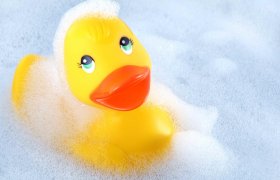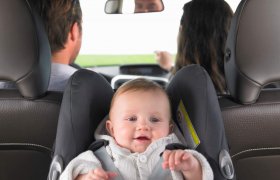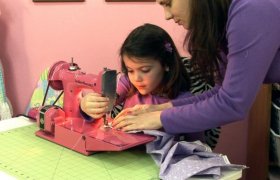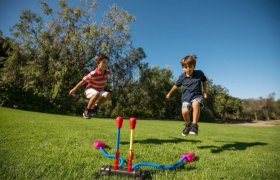Baby Proofing your home Doesn’t Get Easier than This
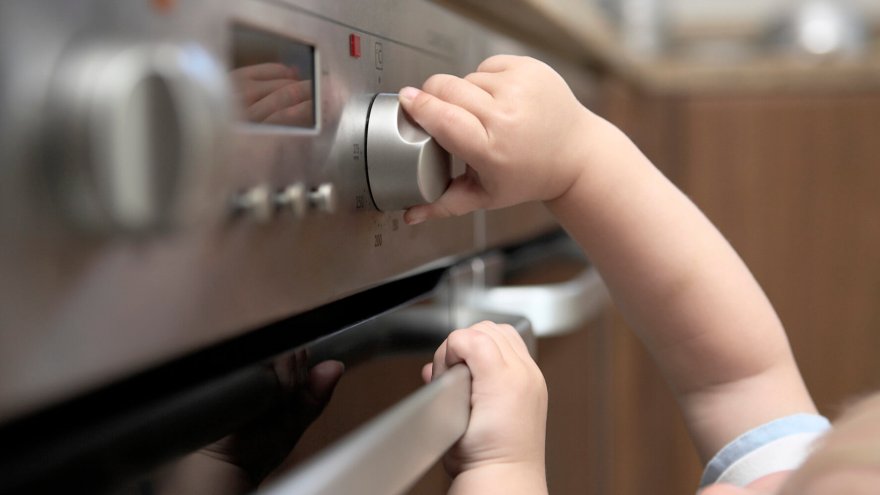
So, you’ve got a newborn on the way? Congratulations! In all your excitement, you’ve probably been getting everything ready from figuring out her bedroom decorations to her wardrobe—but have you put much thought into all the necessary safety precautions?
Babies are experiencing the world for the first time, so this means your little one is going to be naturally curious. Naturally, curiosity can lead to a little bit of trouble if you aren’t careful, but it’s pretty easy to baby proof your home so that your little one can stay safe and happy without her exploratory tendencies being hampered. You don’t have to keep your baby in a bubble by any means, but there’s plenty of ways you can make sure you (and your home) and fully prepared to take on the responsibility of keeping your baby out of harm’s way. You’re pretty much going to have to take almost every room in your home into account, so here’s how you can manage your baby’s safety throughout the entire house.
Your Baby’s Bedroom
Your little one will be spending a lot of time in her bedroom—especially within the first few months. When considering how to make your baby’s bedroom safe, you’ll first want to keep her crib in mind.
First off, make sure you have no pictures hanging or have any shelves set up above your baby’s crib. You definitely don’t want any objects (especially heavy ones) of any kind falling on top of your baby. If you really feel it’s necessary to have a shelf near your baby’s crib, you’re going to want to get some furniture wall straps (or anti-tip ties) to ensure that anything that could fall on your baby and her crib is securely tied to the wall. As far as furniture straps are concerned, it’s actually best if you use them on all the furniture throughout the house.
You’re also going to want to consider the height of your baby’s mattress. When your little one first arrives, set the mattress to the highest level possible. When your baby’s mattress is at its highest, it’s going to make it easier when you lift her out of her crib; there’s no reason to create a large distance between you and the crib if you don’t have to. Once your baby gets a little older though, you’ll want to lower the height of the mattress. You have to remember that your baby is going to want to explore all her surroundings, so you want to make sure that she can’t get out of the crib on her own.
It’s understandable that you’ll want to keep your little one nice and cozy while she’s in her crib, but make sure you don’t wrap her up in too many blankets. If your baby is wrapped up too tight, she could get tangled up without the possibility of freeing herself, or she could even suffocate. If you want to give her a wearable blanket to keep her warm, that’s just fine. Also, make sure you don’t have a ton of pillows or stuffed animals surrounding her in the crib; this can also put your baby at risk for suffocation.
You’re also going to want to install window guards for when your baby is actually able to walk around on her own. She’s going to want to see what life is like outside the window, and she could very well figure out how to open up the windows all on her own.
The Kitchen
The kitchen can actually be a pretty dangerous place for a baby. That’s not to say that your baby needs to be kept out of the kitchen at all times, but you most certainly want to keep the kitchen extra safe.
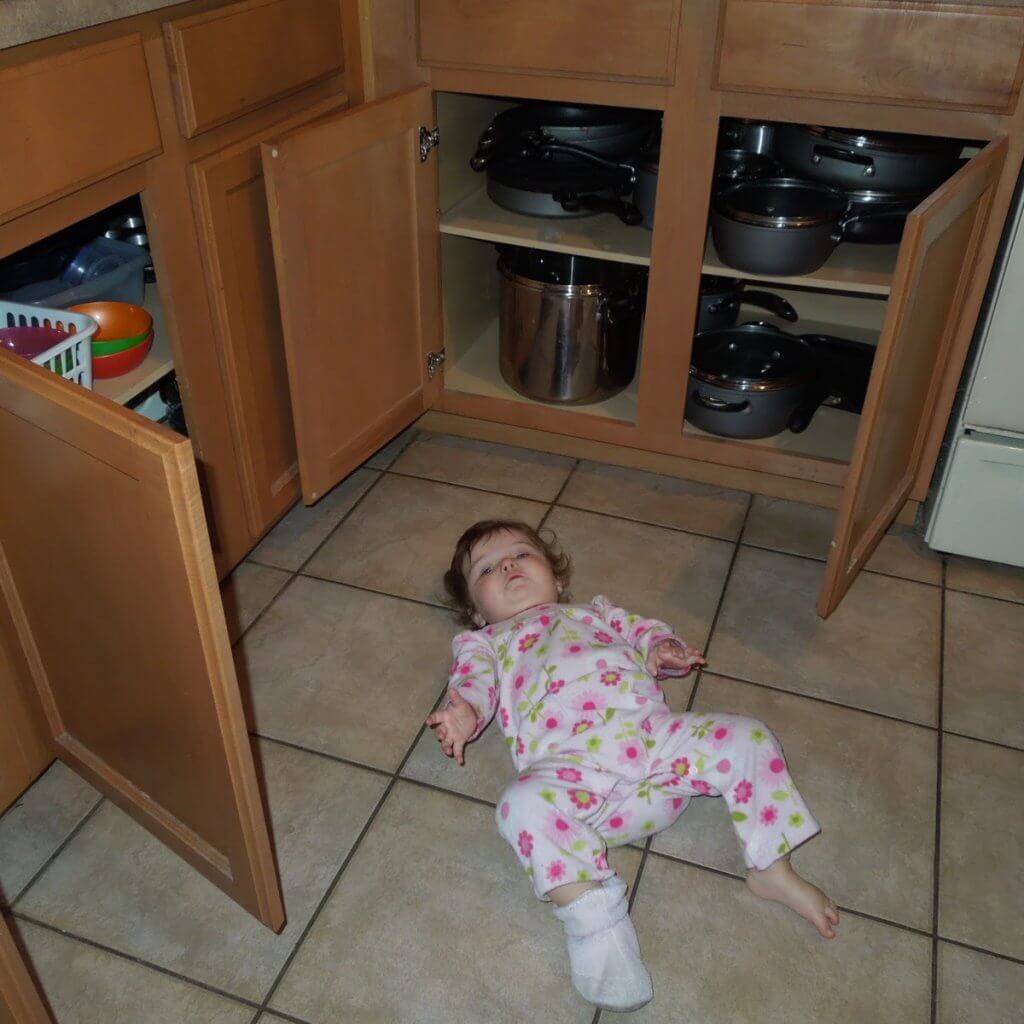
Make sure you get some appliance latches to secure the door of your oven; you don’t want your baby’s exploratory spirit to lead her to get inside of it.
Any cleaning supplies you have cannot be stored in cabinets close to the floor or under the sink. All cleaning supplies need to be kept out of the reach of your baby in order to prevent any sort of poisoning.
It’s also important that you secure the trashcan; you don’t want your little one rummaging through the garbage.
It may sound like a no-brainer, but never cook while holding your child. It’s totally understandable that you’ll want to keep her close to you for her own comfort, but it isn’t safe to have your baby anywhere near cooking supplies, raw foods, or a hot stove. You can also put safety knobs on the stove to make sure she can’t turn them on in case she somehow gets up to the level of the stove.
As far as pots and pans go, you aren’t going to want to let her play with them. If she bangs around on pots and for fun, she’s going to think of pots and pans as toys more or less. If she thinks pots and pans are playthings, she could very well reach for a pot or pan while it’s hot or filled with boiling water. Also make sure you always turn the handles of pots in the direction of the stove; don’t give your baby any room to pull anything down by giving her access to the handles.
If you must have your baby with you in the kitchen while cooking, place her in a baby seat on the floor. Just watch out for her when moving around in the kitchen.
The Living Room
If you and your family members and friends like to watch a little television in the living room, make sure that your television isn’t able to fall or tip over. If you have a flat screen television hanging on the wall, go ahead and use furniture ties to ensure it’s in no danger of hitting the ground
It’s imperative that you take every electrical cord, wire, and outlet into account. You can use outlet covers to prevent the possibility of your baby getting shocked. You also have to make sure that all wire and cords are securely wrapped and hidden behind the furniture.
Really, as far as electrical cords are concerned, it doesn’t matter what room it is. All electrical cords and outlets need to remain out of your baby’s reach.
Also, remember not to leave any appliances around the house plugged in; your baby could easily reach for something like an iron, coffee maker, or toaster and accidently turn it on and harm herself.
If you have a fireplace in your living room, make sure to get grills for the fireplace so your baby doesn’t wander inside.
The Bathroom
First off, it’s important that you or anyone in your family doesn’t leave any razors in plain sight (whether this be in the tub or even by the bathroom sink). Any sharp objects should be kept in drawers, and you might want to use some safety ties to make sure your baby can’t get inside any drawers.
Keep in mind the tub and the surrounding area are going to be wet, which makes slipping and falling a lot easier than other parts of the house. Keep a slip mat in the tub and have one the outside of the tub as well.
If you keep any kind of medicine in your bathroom, make sure it’s securely stored. You definitely don’t want your little one getting into your medicine no matter what it is.
You also want to remember to always put the toilet seat down (and keep it securely fastened) so that there’s no risk of your baby getting in and possibly drowning.
Safety Precautions that Aren’t Room-Specific
While it’s important to make sure everywhere in your house is babyproofed to meet the safety needs unique to each room, there’s still precautions that need to be taken no matter what room your considering.
You’re going to want to get some baby gates so that your baby doesn’t wander from room to room. Put them at the foot of the stairs, at the top of the stairs, and between any passageway between room to room. You want to let your baby explore a little, but you don’t want her wandering off anywhere she isn’t supposed to be.
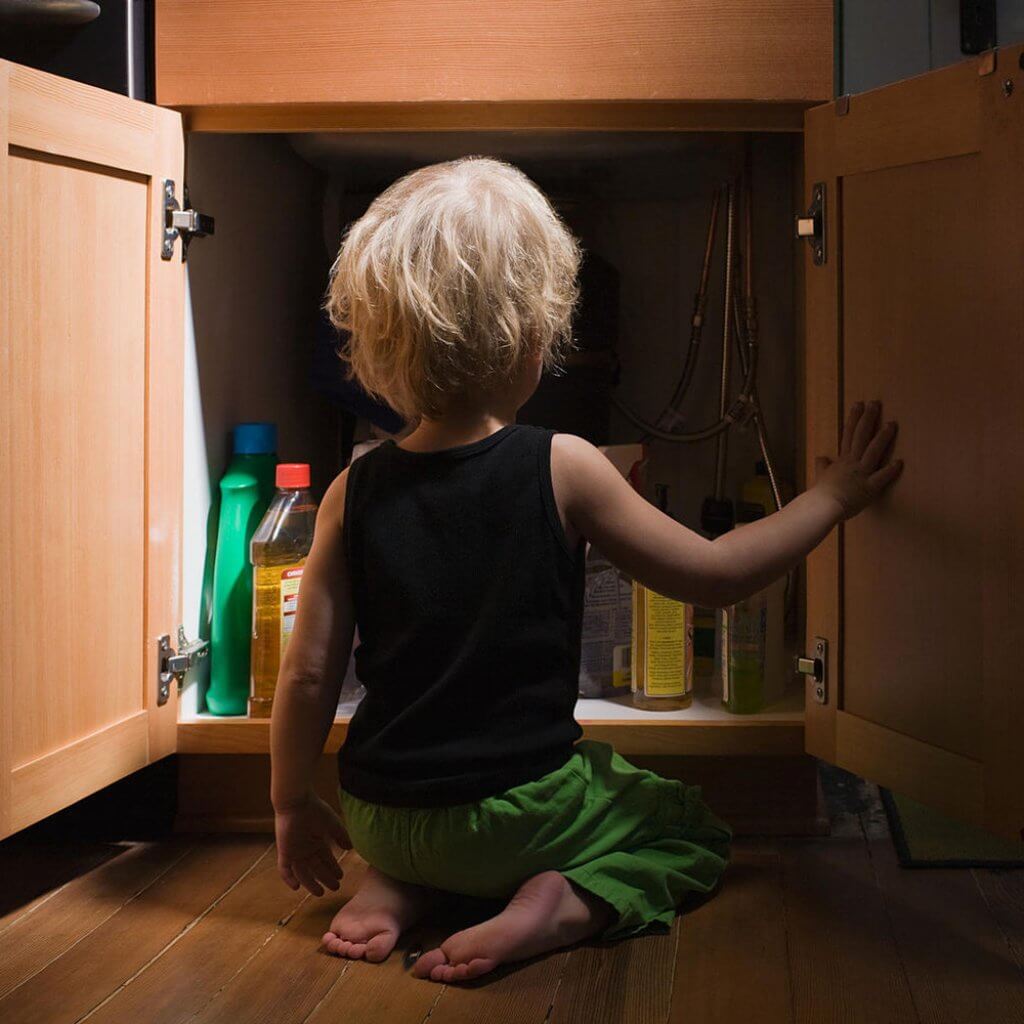
You’re going to have think about the safety of your baby’s toys as well. To begin with, make sure she has no toys that are smaller than her mouth; choking hazards must be avoided and prevented at all costs. Also, make sure the toys don’t have little pieces that she can take off the toy such as buttons, beads, or ribbons.
In addition to electrical cords being kept out of your baby’s reach, you also want to remember to keep any cords and strings that hang from blinds tightly tucked away. If you want, you can even get cordless blinds.
Another thing you might want to consider is taking an infant CPR class. Of course, no parent wants to be put in the position where you have to conduct CPR on your baby, but knowing what to do should the time come will make a huge difference in your ability to properly handle such a situation.
Keeping your baby safe doesn’t mean you have to prevent her from having any fun. You want to keep your baby’s safety in mind, but you don’t want to overdo it either. Of course, you can never be too careful, but these simple safety precautions are more than sufficient. There’s no reason to live in constant panic in regards to your baby’s safety; there’s plenty of ways you can babyproof your home and still let your baby do some exploring.

